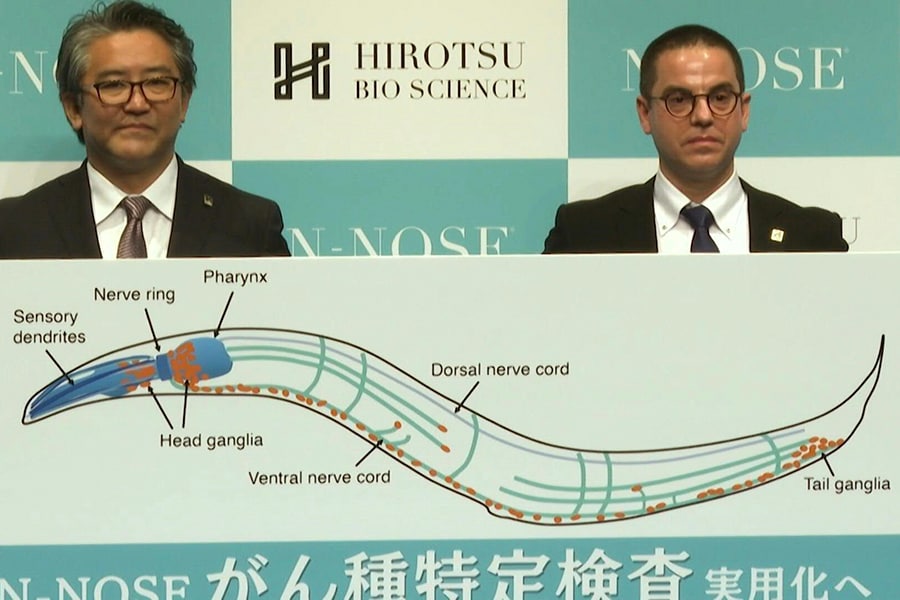
Japan firm uses nematodes to sniff out cancer
Japan's Hirotsu Bio Science has developed a screening test using tiny worms to detect early signs of pancreatic cancer in urine
 Hirotsu Bio Science's new test is not meant to diagnose pancreatic cancer, but could help boost routine screening
Hirotsu Bio Science's new test is not meant to diagnose pancreatic cancer, but could help boost routine screening
A screening test using tiny worms to detect early signs of pancreatic cancer in urine has been developed by a Japanese biotech firm, which hopes it could help boost routine screening. Scientists have long known that the bodily fluids of cancer patients smell different to those of healthy people, with dogs trained to detect the disease in breath or urine samples.
But Hirotsu Bio Science has genetically modified a type of worm called "C. elegans"—around one millimetre long, with an acute sense of smell —to react to the urine of people with pancreatic cancer, which is notoriously difficult to detect early.
"This is a major technological advancement," CEO Takaaki Hirotsu, a former academic who studied the tiny worms known as nematodes, told AFP.
The Tokyo-based firm has already used the worms to detect cancer in screening tests, though without specifying which type.
The new test is not meant to diagnose pancreatic cancer, but could help boost routine screening as urine samples can be collected at home without the need for a hospital visit, Hirotsu said at a press conference on Tuesday.







